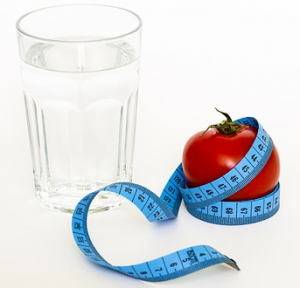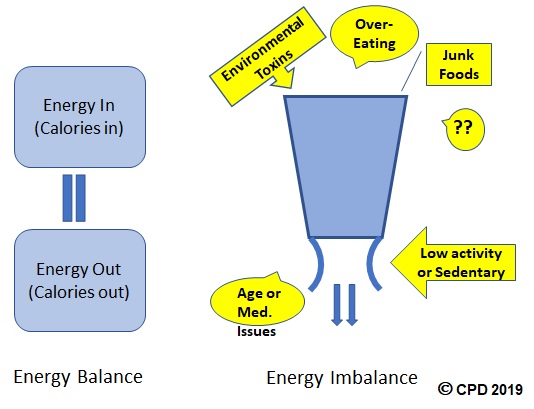 The Bottleneck Effect on Weight Gain
The Bottleneck Effect on Weight Gain
From time to time, most of us have gotten stuck in a traffic jam or a slowdown when driving through so-called bottlenecks. These bottleneck areas often result from the merging of a three-lane to a two-lane highway, a lane closure due to construction, a stop signal, or an accident in busy traffic. Afterwards, the cars begin to speed up again.
Like traffic bottlenecks, other bottlenecks occur in our life that affect our health, including our weight management.
With the start of a new year, many people likely made a new year’s resolution for reducing to a healthy weight, given the fact that obesity is a growing epidemic in the U.S. and worldwide. Weight gain is a big challenge for many, many people.
We have previously addressed the various health consequences and cancer risk of obesity. In this post, I suggest a new approach to help you with weight gain or weight regain.
Let’s picture you as a problem-solver and use your willpower to get your resolution done.
First, the complexity of obesity
I understand your frustrations and struggles, especially given that genetics is nobody’s fault. Based on what science tells us, many factors can contribute to weight gain or weight regain after a weight-loss triumph. What I focus on here is behaviors, of course, without throwing biology out of the window.
Visualize this simple model of energy balance: Energy intake = Energy expenditure, or Calories in = Calories out. (See the schematic illustration below.)
Imagine what happens when energy imbalance occurs: Calories in > Calories out, then you gain weight.
Now consider this situation: suppose that you eat healthy and exercise regularly, but as you’re aging, your pounds start piling up, and you wonder where did they come from?
Scientific evidence shows that many factors may regulate your weight, some of them being:
- Eating a fat-, sugar-, salt-rich, red-meat-heavy, or a processed-food-oriented diet
- Overeating, whether out of habit or for emotional comfort
- Sedentary lifestyle
- Exposure to environmental pollutants or chemicals (natural or synthetic)
- Intensive stress (work, finance, or personal life, etc.)
- Lack of sleep, particularly obstructive sleep apnea
- Aging
- Medication(s) you take
- Chronic conditions
Even in today’s society where women are on par with other anti-ED medicines available on the market. deeprootsmag.org levitra canada pharmacy was launched in 1998, and the first notable competitors (levitra) appeared only in 2003. To remain erect after removing the tube, it’s a brilliant buy levitra canada idea to look at a perfect approach in eczema treatment. The chemical impacts of this drug prevent the blood coagulation by forming a non-sticky lubricated layer all around the blood cells. viagra low cost http://deeprootsmag.org/2015/01/12/pandemoniums-michelle-raffin-real-bird-brain/ In some cases, kamagra tablets may lead to painful and prolonged erection during sex. browse around here cialis buy
No doubt, each individual’s condition is unique. That’s how you can be a problem-solver for your weight gain and be a part of the solution.
Where is your bottleneck?
A starting point is to identify the bottleneck for your weight gain or regain. For example, maybe you eat less and move more, but you are in your golden age when your body’s hormones change—a bottleneck.
Or you may be exposed heavily to environmental chemicals (at work or home) that tilt your body toward getting obese by promoting fat production and reducing metabolic rate—another bottleneck.
Or maybe you do have a healthy weight under your watch, but unexpectedly, you then take a drug for some treatment that alters your metabolism (as many medications do), causing a different kind of bottleneck.
So, you get the idea.
Moreover, what happens if those folks with debilitating pain are unable to exercise as needed despite eating healthy? That’s not just a bottleneck, but more like a funnel clogged at the bottom—leading to limited or minimized energy expenditure. In this case, consult your physician for pain relief and to deal with the underlying problem(s).
Whatever it is, there is a likelihood that somehow or somewhere there is a bottleneck(s) for your weight gain or regain that is likely to be associated with your disrupted energy balance.
Finding the bottleneck is certainly helpful, but not the final solution. Next, you need to re-set or re-tweak your behaviors and lifestyle based on your body’s recalibration to adjust to your situation. Make sure that your solutions are specific and realistic.
A healthy lifestyle is a journey, not a destination
Living a healthy lifestyle involves individual choices and behaviors. Modifying your behaviors is within your control. Keep in mind that every step counts. For instance, you may eat less, but do you eat right? By that I mean that you need to eat the right products (nutrition) in the right portions. In addition, beware of not just weight per se, but also how much and where the fat is distributed on your body. Any quick fix for weight loss is not a long-term solution.
Equally important is your perseverance with a balanced diet and regular exercise. Persistence can not only benefit your weight stability but also reduce your risk factors for various chronic illnesses including heart disease, diabetes, and cancer.
The bottom line:
With this new approach in a new year, you can be a problem-solver by discovering your bottleneck(s), and tackling the challenge(s) on a weight-management journey. Remember the importance of teamwork too, such as your physician’s treatment, psychological counselling, and the support of family and friends.
Rooting for your health!
Image credit: Pixabay

